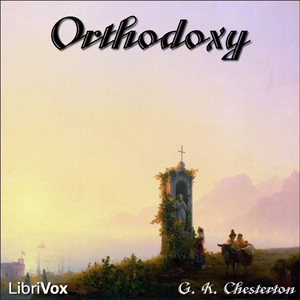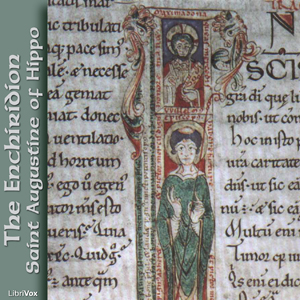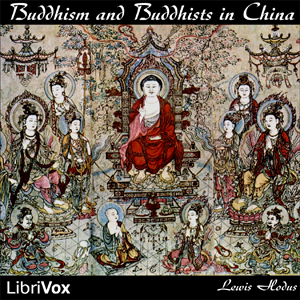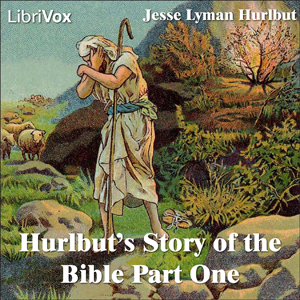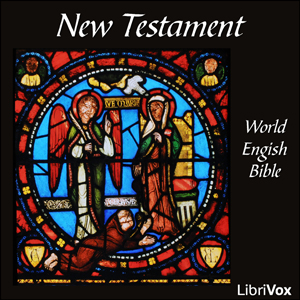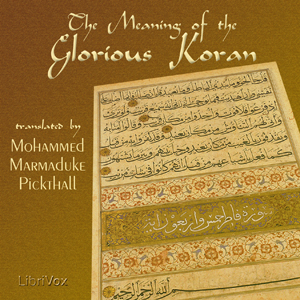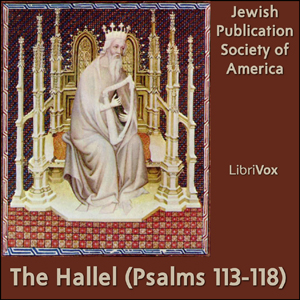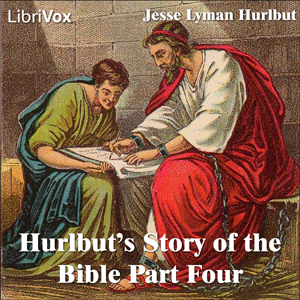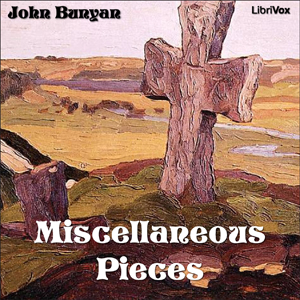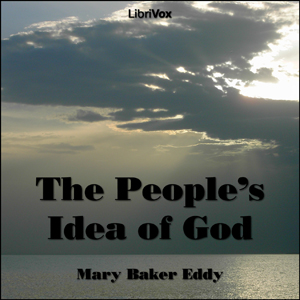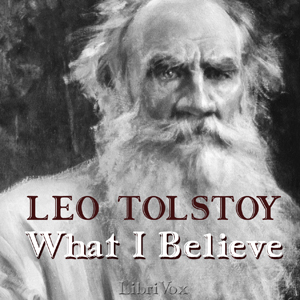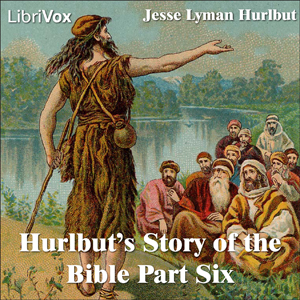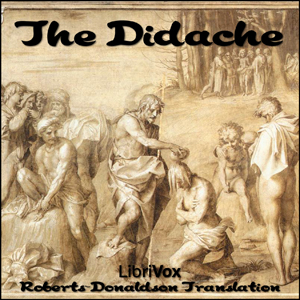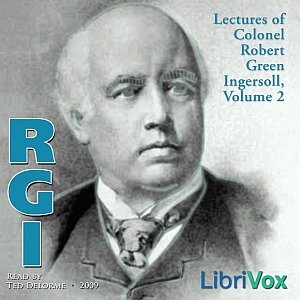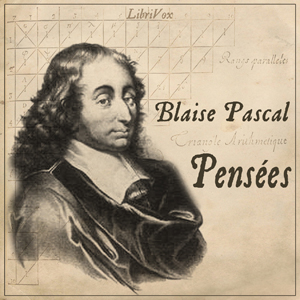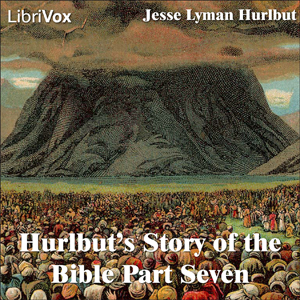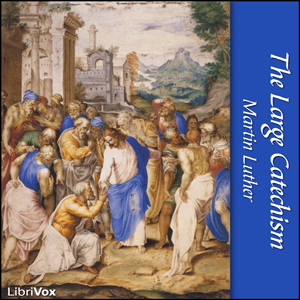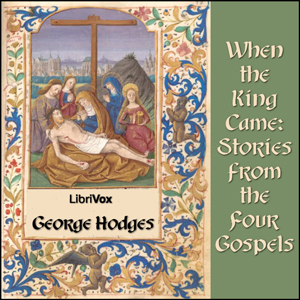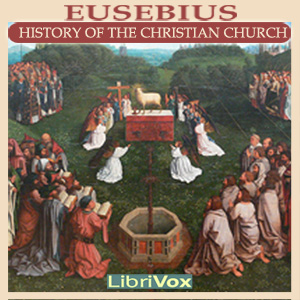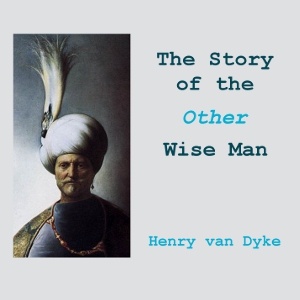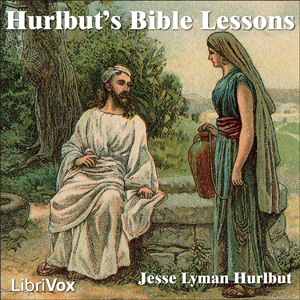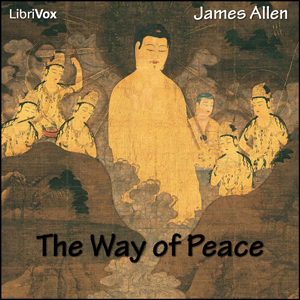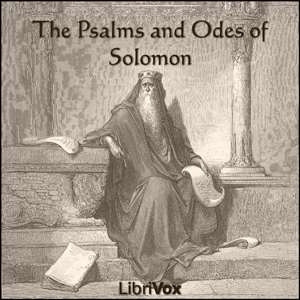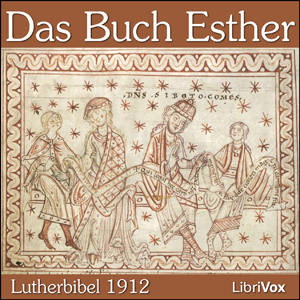Ecclesiastes (or The Preacher) is the twenty-first book of The Bible. The author of this book is unknown but is considered by many biblical scholars to be Solomon.The author describes how all endeavors in life are in vain and a grasping for the wind, since all comes to naught in the end when we return to the dust from whence we came. The generations to come will not remember us. In the end, The Preacher admonishes us that the only purpose for man is to eat, drink and perform his labors under the sun and to do it with happiness and devotion to God.This reading comes from the American Standard Version (ASV) of The Holy Bible. (Summary by Robert Garrison)
1 episodes
The Song of Songs is the twenty-second book of The Bible and was authored by Solomon. In some translations, this book is entitled The Song of Solomon. It is also known as The Best Song.
Replete with metaphor, this book is a love song that describes the wooing and wedding of a lowly but very comely shepherdess to the great king Solomon. It speaks of the joys of love as well as its heartaches.
Although this reading was performed by a single male voice, the book has three main speakers: the Shulamite shepherdess, King Solomon and a chorus by the daughters of Jerusalem. Biblical scholars also note the allegorical depictions of God as King and the bride as Israel. In New Testament doctrine, the bride is thought of as the Church and Christ as King.
The Song of Songs is one of the Wisdom Books. This reading comes from the American Standard Version (ASV) of the Holy Bible.
(Summary by Robert Garrison)
1 episodes

Genesis is the story of the Creation and the people that followed it. The place is Canaan which is the land of Israel and the adjoining nations. The Book discusses the complex relationship between God and Mankind and portrays the travails of one particular family, the family of Noah, Abraham, Isaac and Jacob.
The book is priceless in its description of the custom of the day and the interaction within the family, tribe and Nation. But most of all the beauty of Genesis lies in the description of human behavior from its petty jealousies through unrelenting commitment for a worthy cause and love for family and friends.
We follow the trials and tribulation of the main characters as they deal with adverse circumstances and at times global annihilation. Important part of the book is also the recounting of the genealogy of the people from Adam and Eve to Joseph in Egypt. A connection is made to other different nations and tribes.
The Hebrew language is the original language of the Bible. Although Hebrew went through several transformations so far as the shape of the Alphabet, the text is consistent. (summary by Israel Radvinsky)
50 episodes

The Book of Job (American Standard Version) is presented in forty-two chapters and is one of the Old Testament Wisdom Books. The narrative chronicles the trials of Job as he is brought low from a comfortable and exalted position in his community to face loss of his fortune, children and health. Joined by three friends who initially commiserate and sympathize with him, there ensues a lengthy argument about the fate of the wicked and the just and much questioning about the character of God and the justice He metes out to his creations.
A quite lively and poetic discussion ensues among these wise elders and their suppositions and conclusions are eventually contested by a youth who enters the discussion toward the end. God has the final word in this narrative and Job is left to abjectly acknowledge that his complaints and knowledge mean little in the face of that which is so far beyond his ability to comprehend.
Debate regarding the meaning, purpose and author of this book is still hotly contested among biblical scholars. It is far beyond the scope of this summary to offer any conclusions regarding this work. The reader offers the words to the listener with no judgment or further explanation.
Even without deep examination, the poetic nature of the story offers many insights into facing and overcoming adversity.(Summary by Robert Garrison)
6 episodes
The Imitation of Christ is widely considered one of the greatest manuals of devotion in Christianity. The life of Christ is presented as the highest study possible to a mortal, as Jesus’ teachings far excel all the teachings of the saints. The book gives counsel to read the scriptures, statements about the uses of adversity, advice for submission to authority, warnings against temptation and how to resist it, reflections about death and the judgment, meditations upon the oblation of Christ, and admonitions to flee the vanities of the world. (Summary drawn from Wikipedia).
13 episodes
This collection includes 40 different Christmas carols collected and read by Douglas D. Anderson, the creator of The Hymns and Carols of Christmas website, a public-domain collection of Christmas music containing over 2,600 hymns, carols and songs.
40 episodes
Bakunin's most famous work, published in various lengths, this version is the most complete form of the work published hitherto.
Originally titled "Dieu et l'état", Bakunin intended it to be part of the second portion to a larger work named "The Knouto-Germanic Empire and the Social Revolution" (Knouto-Germanic Empire is in reference to a treaty betwixt Russia and Germany at the time), but the work was never completed. (from book introduction)
6 episodes
James Allen’s most famous work, As A Man Thinketh, has gained almost cult status among those studying spiritual mysticism. He wrote all of his works without copyright for the benefit of man, and this work, The Heavenly Life, one of his more obscure writings, contains the wisdom of the meaning of spiritual oneness with God.
10 episodes
With his typical wit and erudition Chesterton presents Christianity as the best answer to a series of interlocking riddles that live in every human heart. - Summary by Pleonic
17 episodes
The Enchiridion, Manual, or Handbook of Augustine of Hippo is alternatively titled, "Faith, Hope, and Love". The Enchiridion is a compact treatise on Christian piety, written in response to a request by an otherwise unknown person, named Laurentis, shortly after the death of Saint Jerome in 420. It is intended as a model for Christian instruction or catechesis. - As the title indicates, the work is organized according to the three graces necessary for the Christian worship of God: Faith, Hope and Love. Under Faith, Augustine explains the use of the Apostles' Creed, in teaching Christian doctrine and in refuting heresies. Under Hope, he briefly explains the Lord's Prayer as a model of Christian prayer. The final part is a discourse on Christian love. (Summary from Wikipedia)
7 episodes
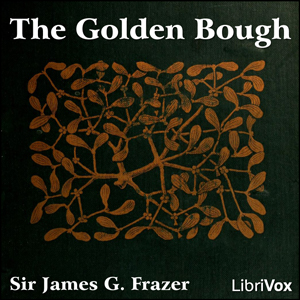
The Golden Bough: A Study in Magic and Religion is a wide-ranging comparative study of mythology and religion, written by Scottish anthropologist Sir James George Frazer (1854–1941). It offered a modernist approach, discussing religion dispassionately as a cultural phenomenon, rather than from a theological perspective. Although most of its theories have subsequently been exploded (the most famous one being that of the relationship between magic, religion and science), its impact on contemporaneous European literature was substantial.The Golden Bough attempts to define the shared elements of religious belief, ranging from ancient belief systems to relatively modern religions such as Christianity. Its thesis is that old religions were fertility cults that centered around the worship of, and periodic sacrifice of, a sacred king. This king was the incarnation of a dying and reviving god, a solar deity who underwent a mystic marriage to a goddess of the earth, who died at the harvest, and was reincarnated in the spring. Frazer claims that this legend is central to almost all of the world’s mythologies, and he offers a plethora of colourful examples from all over the world. Moreover, his book is written in an admirable style, seldom excelled by his more modern colleagues. (From Wikipedia, with small additions by Måns Broo)
60 episodes
Charles Spurgeon was a popular Baptist minister in London in mid-Victorian times; his ministry was highly influential and had a significant effect on many families in London and further afield. It was difficult to find a hall large enough to accommodate the crowd who wished to hear him. At times the Royal Surrey Gardens' Music Hall was hired to accomodate the Sunday congregation; this could seat 10,000 but large numbers were unable to gain admittance.
His world-wide heritage is very much with us today through the many chuches built, missionary work begun, children's charity founded and theological colleges established as a result of his ministry.
The sermons in this collection were preached buring May 1898 and published immediately at one penny (1d.) each. These were widely circulated and remain one of the all-time best-selling series of writings. (Summary by Alan Chant)
6 episodes
The Dawn and the Day, or, The Buddha and the Christ, Part 1 is a text similar to the epic poetry of Homer or, more accurately, classic Hindu texts, such as the Baghavad-Gita. - Summary written by not.a.moose
10 episodes
Buddhism and Buddhists in China is an anthropological text describing Buddhism as practiced in China at the beginning of the 20th Century. Interestingly, it also compares and contrasts Buddhism with Christianity with respect to or in response to missionary work. (Summary by Scott)
11 episodes
Some years ago, the editor of an English magazine sent a communication to "the hundred greatest men in Great Britain" asking them this question: "If for any reason you were to spend a year absolutely alone, in a prison for instance, and could select from your library three volumes to be taken with you as companions in your period of retirement please to inform us what those three books would be." The inquiry was sent to peers of the realm, prominent leaders in politics, judges, authors, manufacturers, merchants, gentlemen of leisure—men who would represent every aspect of successful life. In the answers it was found that ninety-eight of the hundred men named "The Bible" first on the list of the three books to be chosen. (From Book introduction)
36 episodes
Some years ago, the editor of an English magazine sent a communication to "the hundred greatest men in Great Britain" asking them this question: "If for any reason you were to spend a year absolutely alone, in a prison for instance, and could select from your library three volumes to be taken with you as companions in your period of retirement please to inform us what those three books would be." The inquiry was sent to peers of the realm, prominent leaders in politics, judges, authors, manufacturers, merchants, gentlemen of leisure—men who would represent every aspect of successful life. In the answers it was found that ninety-eight of the hundred men named "The Bible" first on the list of the three books to be chosen. (From Book introduction)
18 episodes
The World English Bible is a translation of the Bible into modern English. Work on the project began in 1997, but the translation has been released directly into the public domain, free of copyright. It is largely an update of the American Standard Version of 1901, and is intended to be both readable and non-denominational. (Summary by Leon Mire)
57 episodes
The Koran (Qur'an) is regarded by Muslims as the word of God (Allah) as revealed to the prophet Muhammad. It is divided into 114 chapters (surahs), arranged roughly by length. This version, The Meaning of the Glorious Koran, is a widely used English translation of the Koran by a Muslim Englishman. Many Muslims, however, including Pickthall, believe that true translations of the Koran from the original Arabic are impossible, and see translations into other languages only as useful interpretations. (Summary by Leon Mire)
69 episodes
"In this book you will not find the stories of all God's saints. I have gathered a few together, just as one gathers a little posy from a garden full of roses. But the stories I have chosen to tell are those that I hope children will love best to hear." (excerpt from In God's Garden by Amy Steedman)
15 episodes
Some years ago, the editor of an English magazine sent a communication to "the hundred greatest men in Great Britain" asking them this question: "If for any reason you were to spend a year absolutely alone, in a prison for instance, and could select from your library three volumes to be taken with you as companions in your period of retirement please to inform us what those three books would be." The inquiry was sent to peers of the realm, prominent leaders in politics, judges, authors, manufacturers, merchants, gentlemen of leisure—men who would represent every aspect of successful life. In the answers it was found that ninety-eight of the hundred men named "The Bible" first on the list of the three books to be chosen. (From Book introduction)
20 episodes
Rabbi Louis Ginzberg was one of the outstanding Talmudists of the twentieth century. He was born on November 28, 1873, in Kovno, Lithuania; he died on November 11, 1953, in New York City. Ginzberg taught at the Jewish Theological seminary from 1903 to 1953. For 50 years, he trained two generations of Conservative Rabbis.The Legends of the Jews is an epic 7-volume compilation of traditional Jewish stories loosely related to the Bible. Over the millenia, these stories, which expand on the Bible, flesh out the lives of biblical figures. In the process, they help bring to life the Bible's valuable lessons.The Legends of the Jews has been called a monumental work of scholarship. It is studied by serious students of both Judaism and Christianity. And yet the stories continue to be accessible and understood by all. They were designed to impart lessons of the Torah, and any child or adult will find much to enjoy about this work.(Summary by Scott Sherris and Wikipedia)
42 episodes
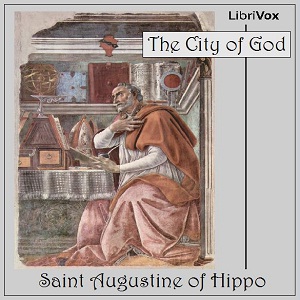
Rome having been stormed and sacked by the Goths under Alaric their king, the worshippers of false gods, or pagans, as we commonly call them, made an attempt to attribute this calamity to the Christian religion, and began to blaspheme the true God with even more than their wonted bitterness and acerbity. It was this which kindled my zeal for the house of God, and prompted me to undertake the defence of the city of God against the charges and misrepresentations of its assailants. This work was in my hands for several years, owing to the interruptions occasioned by many other affairs which had a prior claim on my attention, and which I could not defer.
However, this great undertaking was at last completed in twenty-two books. Of these, the first five refute those who fancy that the polytheistic worship is necessary in order to secure worldly prosperity, and that all these overwhelming calamities have befallen us in consequence of its prohibition. In the following five books I address myself to those who admit that such calamities have at all times attended, and will at all times attend, the human race, and that they constantly recur in forms more or less disastrous, varying only in the scenes, occasions, and persons on whom they light, but, while admitting this, maintain that the worship of the gods is advantageous for the life to come. In these ten books, then, I refute these two opinions, which are as groundless as they are antagonistic to the Christian religion.
But that no one might have occasion to say, that though I had refuted the tenets of other men, I had omitted to establish my own, I devote to this object the second part of this work, which comprises twelve books, although I have not scrupled, as occasion offered, either to advance my own opinions in the first ten books, or to demolish the arguments of my opponents in the last twelve. Of these twelve books, the first four contain an account of the origin of these two cities—the city of God, and the city of the world. The second four treat of their history or progress; the third and last four, of their deserved destinies. And so, though all these twenty-two books refer to both cities, yet I have named them after the better city, and called them The City of God. (Summary by the author in his Retractationes (ii. 43) as translated by Marcus Dods)
69 episodes
Hallel (Hebrew: הלל "Praise [God]") is part of Judaism's prayers, a verbatim recitation from Psalms 113-118, which is used for praise and thanksgiving that is recited by observant Jews on Jewish holidays. Summary from Wikipedia
6 episodes
Some years ago, the editor of an English magazine sent a communication to "the hundred greatest men in Great Britain" asking them this question: "If for any reason you were to spend a year absolutely alone, in a prison for instance, and could select from your library three volumes to be taken with you as companions in your period of retirement please to inform us what those three books would be." The inquiry was sent to peers of the realm, prominent leaders in politics, judges, authors, manufacturers, merchants, gentlemen of leisure—men who would represent every aspect of successful life. In the answers it was found that ninety-eight of the hundred men named "The Bible" first on the list of the three books to be chosen. (From Book introduction)
18 episodes
John Bunyan (November 28, 1628 – August 31, 1688), a Christian writer and preacher, was born at Harrowden (one mile south-east of Bedford), in the Parish of Elstow, England. He wrote The Pilgrim's Progress, arguably the most famous published Christian allegory. In the Church of England he is remembered with a Lesser Festival on 30 August. Bunyan became a popular preacher as well as a prolific author, though most of his works consist of expanded sermons. In theology he was a Puritan, but there was nothing gloomy about him. The portrait his friend Robert White drew, which has often been reproduced, shows the attractiveness of his true character. (Summary from Wikipedia)
4 episodes
Some years ago, the editor of an English magazine sent a communication to "the hundred greatest men in Great Britain" asking them this question: "If for any reason you were to spend a year absolutely alone, in a prison for instance, and could select from your library three volumes to be taken with you as companions in your period of retirement please to inform us what those three books would be." The inquiry was sent to peers of the realm, prominent leaders in politics, judges, authors, manufacturers, merchants, gentlemen of leisure—men who would represent every aspect of successful life. In the answers it was found that ninety-eight of the hundred men named "The Bible" first on the list of the three books to be chosen. (From Book introduction)
18 episodes
"The improved theory and practice of religion and of medicine are mainly due to the people's improved views of the Supreme Being." (from The People's Idea of God)
1 episodes

Hosea was the son of Beeri and a prophet in Israel in the 8th century BCE. He is one of the Twelve Prophets of the Jewish Hebrew Bible, also known as the Minor Prophets of the Christian Old Testament. We know practically nothing about the life or social status of Hosea. According to the Book of Hosea, he married the prostitute Gomer, the daughter of Diblatayim, at God's command. He lived in the Northern Kingdom in the period 740–725 BCE. In Hosea 5:8 ff., there is a reference to the wars which led to the capture of the kingdom by the Assyrians (ca. 734–732 BCE). It is not certain if he has also experienced the destruction of Samaria, which is foreseen in Hosea 14:1. Hosea's family life reflected the "adulterous" relationship which Israel had built with polytheistic gods. His children's names made them like walking prophecies of the fall of the ruling dynasty and the severed covenant with God — much like the prophet Isaiah a generation later. Hosea is often seen as a "prophet of doom", but underneath his message of destruction is a promise of restoration." (From Wikipedia)
3 episodes
"The inner working of my soul, which I wish to speak of here, was not the result of a methodical investigation of doctrinal theology, or of the actual texts of the gospel; it was a sudden removal of all that hid the true meaning of the Christian doctrine – a momentary flash of light, which made everything clear to me. It was something like that which might happen to a man who, after vainly attempting, by a false plan, to build up a statue out of a confused heap of small pieces of marble, suddenly guesses at the figure they are intended to form by the shape of the largest piece; and then, on beginning to set up the statue, finds his guess confirmed by the harmonious joining in of the various pieces." (Extract from Chapter 1)
14 episodes
Published in 1904, The Twentieth Century New Testament is considered the first translation of the Bible into modern English. It was produced in Britain over a period of 15 years by approximately 20 people -- ministers, housewives, school teachers and businessmen -- who were united by their desire for a New Testament in the language of the people. They were advised by such scholars as J. Rendel Harris and Richard Weymouth so their rendering is quite accurate. In addition they made some effort at rearranging the New Testament books in the order scholars believe they were written -- Mark comes before Matthew, for instance. They also include brief introductions before each book. Though little-known today, the reader will find in The Twentieth Century New Testament a delightful translation that is rewarding both for in-depth study and personal reading. (Summary by Pleonic)
50 episodes
Some years ago, the editor of an English magazine sent a communication to "the hundred greatest men in Great Britain" asking them this question: "If for any reason you were to spend a year absolutely alone, in a prison for instance, and could select from your library three volumes to be taken with you as companions in your period of retirement please to inform us what those three books would be." The inquiry was sent to peers of the realm, prominent leaders in politics, judges, authors, manufacturers, merchants, gentlemen of leisure—men who would represent every aspect of successful life. In the answers it was found that ninety-eight of the hundred men named "The Bible" first on the list of the three books to be chosen. (From Book introduction)
38 episodes
The Didache is the common name of a brief early Christian treatise (dated by most scholars to the late first or early second century), containing instructions for Christian communities. The text, parts of which may have constituted the first written catechism, has three main sections dealing with Christian lessons, rituals such as baptism and eucharist, and Church organization. It was considered by some of the Church Fathers as part of the New Testament but rejected as spurious or non-canonical by others, eventually not accepted into the New Testament canon with the exception of the Ethiopian Orthodox Church "broader canon." The Roman Catholic Church has accepted it as part of the collection of Apostolic Fathers. The Didache, or Teaching of the Twelve Apostles, is an early Christian text. Scholars knew of the Didache through references in other texts, but the text itself had been lost. It was rediscovered in 1873 by Philotheos Bryennios. (Summary by Wikipedia, modified by Sam Stinson)
3 episodes
A second volume of lectures by the most famous orator of the 19th century. Ingersoll was a tireless crusader for the dignity of humanity, and a relentless opponent of organized religion. (Summary by Ted Delorme)
26 episodes
Jeanne-Marie Bouvier de la Motte-Guyon (commonly known as Madame Guyon) (April 13, 1648 - June 9, 1717) was a French mystic and one of the key advocates of Quietism. Quietism was considered heretical by the Roman Catholic Church, and she was imprisoned from 1695 to 1703 after publishing a book on the topic, A Short and Easy Method of Prayer. This translation is by Thomas Taylor Allen was first published in 1897. Allen's dates are unknown. (Summary from Wikipedia.)
51 episodes
Pascal's Pensées is widely considered to be a masterpiece, and a landmark in French prose. When commenting on one particular section (Thought #72), Sainte-Beuve praised it as the finest pages in the French language. Will Durant, in his 11-volume, comprehensive The Story of Civilization series, hailed it as "the most eloquent book in French prose." In Pensées, Pascal surveys several philosophical paradoxes: infinity and nothing, faith and reason, soul and matter, death and life, meaning and vanity—seemingly arriving at no definitive conclusions besides humility, ignorance, and grace. Rolling these into one he develops Pascal's Wager. (Summary from Wikipedia)
19 episodes
Some years ago, the editor of an English magazine sent a communication to "the hundred greatest men in Great Britain" asking them this question: "If for any reason you were to spend a year absolutely alone, in a prison for instance, and could select from your library three volumes to be taken with you as companions in your period of retirement please to inform us what those three books would be." The inquiry was sent to peers of the realm, prominent leaders in politics, judges, authors, manufacturers, merchants, gentlemen of leisure—men who would represent every aspect of successful life. In the answers it was found that ninety-eight of the hundred men named "The Bible" first on the list of the three books to be chosen. (From Book introduction)
21 episodes
Luther's Large Catechism consisted of works written by Martin Luther and compiled Christian canonical texts, published in April of 1529. This book was addressed particularly to clergymen to aid them in teaching their congregations. Luther's Large Catechism is divided into five parts: The Ten Commandments, The Apostles' Creed, The Lord's Prayer, Holy Baptism, and The Sacrament of the Altar. It and related documents was published in The Book of Concord in 1580. (from Wikipedia)
16 episodes
THIS tells how once the King of Glory came from heaven to visit us here on earth and live amongst us; how He was born in Bethlehem and brought up in Nazareth; how He went about telling people of the Heavenly Kingdom, and doing good, ministering to the sick and the poor; how He was misunderstood, and disliked, and even hated, till at last they took Him in Jerusalem and nailed Him to a cross so that He died; and how, after that, He came to life again, and went back into heaven, promising to return. (Summary from the Preface of When the King Came)
49 episodes
Eusebius presents the history of the Church from the apostles to his own time, with special regard to the following points:
1. the successions of bishops in the principal sees
2. the history of Christian teachers
3. the history of heresies
4. the history of the Jews
5. the relations to the heathen
6. the martyrdoms. (Summary adapted from Wikipedia)
37 episodes
It is under a deep impression that the place and power of prayer in the Christian life is too little understood, that this book has been written. I feel sure that as long as we look on prayer chiefly as the means of maintaining our own Christian life, we shall not know fully what it is meant to be. But when we learn to regard it as the highest part of the work entrusted to us, the root and strength of all other work, we shall see that there is nothing that we so need to study and practise as the art of praying aright. ... the Father waits to hear every prayer of faith, to give us whatsoever we will, and whatsoever we ask in Jesus’ name. (Andrew Murray, quoted from the Preface of this book)
33 episodes
The purpose of the Apology is to prove to the emperors, renowned as upright and philosophical men, the injustice of the persecution of the Christians, who are the representatives of true philosophy … Christians are the true worshipers of God, the Creator of all things; they offer him the only sacrifices worthy of him, those of prayer and thanksgiving, and are taught by his Son, to whom they assign a place next in honor to him. This teaching leads them to perfect morality, as shown in their teacher's words and their own lives, and founded on their belief in the resurrection. (Summary from Wikipedia)
4 episodes
You know the story of the Three Wise Men of the East, and how they travelled from far away to offer their gifts at the manger-cradle in Bethlehem. But have you ever heard the story of the Other Wise Man, who also saw the star in its rising, and set out to follow it, yet did not arrive with his brethren in the presence of the young child Jesus? Of the great desire of this fourth pilgrim, and how it was denied, yet accomplished in the denial; of his many wanderings and the probations of his soul; of the long way of his seeking, and the strange way of his finding, the One whom he sought—I would tell the tale as I have heard fragments of it in the Hall of Dreams, in the palace of the Heart of Man. (Summary written by Henry van Dyke.)
2 episodes
Questions and answers on The Old Testament and The New Testament comprising a complete course of study designed to carry on through the Old Testament in one year and through the New Testament in one year. (Summary from title page)
Read by Diana Majlinger and Esther. File Editing and Cataloging: David Lawrence.
7 episodes
Elsie, young and motherless, has never met her father and is being raised by her father's family. As a strong Christian, she has many trials within the unbelieving family. Her greatest comforts are her faith and her mammy, Chloe. Finally, her father returns home. Will her father love her? Will her father learn to love Jesus? (Summary by Tricia G)Next book in series: Holidays at Roselands
18 episodes
The Way of Peace is your guide to the power of meditation; self and truth; the acquirement of spiritual power; the realization of selfless love; entering into the infinite; saints, sages, and saviors; the law of service; and the realization of perfect peace. (Summary by Andrea Fiore)
7 episodes
How does occultism regard vegetarianism? It regards it very favorably, and that for many reasons. These reasons may be divided into two classes: those which are ordinary and physical, and those which are occult or hidden. Let us see in detail why a vegetarian diet is emphatically the purest and the best. (Summary from Vegetarianism and Occultism)
15 episodes
Jonathan Edwards was a colonial American Congregational preacher, theologian, and missionary to Native Americans. Edwards "is widely acknowledged to be America's most important and original philosophical theologian." His work is very broad in scope, but he is often associated with his defense of Calvinist theology, the metaphysics of theological determinism, and the Puritan heritage. His famous sermon "Sinners in the Hands of an Angry God," emphasized the just wrath of God against sin and contrasted it with the provision of God for salvation; the intensity of his preaching sometimes resulted in members of the audience fainting, swooning, and other more obtrusive reactions. The swooning and other behaviors in his audience caught him up in a controversy over "bodily effects" of the Holy Spirit's presence. (Summary by Wikipedia)This collection contains nineteen of his sermons, including "Sinners in the Hands of an Angry God."
39 episodes
One of the Pseudepigrapha, the Psalms of Solomon is a group of eighteen psalms (religious songs or poems) that are not part of any scriptural canon (they are, however, found in copies of the Peshitta). The Psalms of Solomon were referenced in Early Christian writings, but lost to modern scholars until a Greek manuscript was rediscovered in the 17th century. Politically, the Psalms of Solomon are anti-Maccabee, and some psalms in the collection show a clear awareness of the Roman conquest of Jerusalem under Pompey in 63 BCE, metaphorically treating him as a dragon who had been sent by God to punish the Maccabees.The Odes of Solomon is a collection of 42 odes attributed to Solomon. Various scholars have dated the composition of these religious poems to anywhere in the range of the first three centuries AD. The original language of the Odes is thought to have been either Greek or Syriac, and to be generally Christian in background. (Summary by Wikipedia)
5 episodes
Esther wurde von ihrem Onkel aufgezogen. Sie leben in Susa; das weit weg von Israel liegt. Esther wird Königin. Eine Intrige wird verhindert, als sie durch ihren Mut ihr Volk vor dem Tod schützt. (Zusammenfassung von Anza)
3 episodes
A guide for Christians to walk a godly life. Covering various practical and spiritual topics.This project was proof listened by Guero and Laura Victoria.
32 episodes








